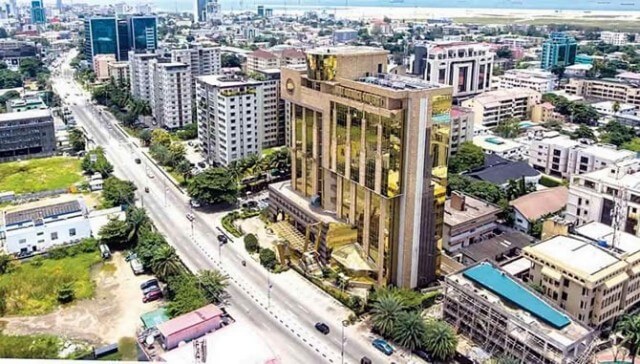Are you a real estate investor in Lagos and would like to know more about contract of sale? We are here for you.
There are quite a number of documents that must be shared before a real estate transaction can be considered completed. The receipt of these documents, especially by the buyer, indicates the willingness of both parties (seller and buyer) to facilitate and see the transaction to the end.
In Lagos, as well as other parts of Nigeria, the contract of sale is one of such documents.
Before you purchase any real estate property, ask if you will be given this document. In case you don’t know how effective it can be, this article provides the answers to your question.
What is a Contract of Sale in Lagos?
It is a document detailing the “contract,” in this case, the purchase of a land or house. It is a document highlighting the willingness to exchange the land or house between the buyer and the seller.
Typically, the exchange is done after both parties have mutually agreed on the terms, one of which is the payment of a specific amount of money for the property or house. You can’t draft an agreement for transfer of property ownership without the contract of sale.
Contents of the Contract of Sale
Before the contract becomes valid and recognized under the law; certain contents must have been spelt-out. Below are some of the essentials to include or the provisions to be made in the contract:
1. Capacity of the Vendor
The “vendor” in this instance, refers to the person selling the property – and who acts as the “owner.”
Other important considerations here are:
- The vendor must be the beneficial owner of the land or property.
- It is also important for the vendor to have the capacity to transfer the ownership of the land to someone else.
- The vendor, in his or her capacity, also reserves the right to grant the buyer the assurances of uninterrupted access to the land, on the completion of the necessary steps.
2. The Property’s Particulars
How do you know that land is genuine and that the vendor (seller or owner) has the legal rights to it? Of course, it has to be through the possession of the relevant documentation.
Hence, the particulars (documents) of the said property must be readily available. Examples are:
- Survey Plan: This document shows the location of the property – as well as the size.
- Certificate of Occupancy (C of O): This type of land title document shows that the vendor is the rightful owner of the property.
- Deed of Assignment: This document specifically concludes the Contract of Sale transaction via the permanent transfer of the land or property from the assignor (the seller) to the assignee (the buyer).
3. Full Details of the Parties Involved
The full details of the transacting parties are important. These are the details of the buyer and the seller. The following are the categories of some of the parties that need to be cited in the contract:
- Entities with corporate personality.
- Natural persons and;
- Persons at law.
The following are some of the pieces of information required of the parties involved:
- Names
- Addresses and;
- Telephone numbers
4. The Property’s Purchase Price
This content of the Contract of Sale has to do with the amount. In this contract, the buyer is expected to pay the “price” – the monetary value of the said property.
Now, the purchase price of the property is required in the contract because of these reasons:
- It indicates that the seller received an offer for the property.
- It shows the buyer’s willingness to go ahead with the transaction.
Important Points about the Property’s Purchase Price
Although a bulk payment can be made for the property; there are also cases of receiving the payment in batches.
The following are some of the considerations:
a. Deposit Clause
This clause is added to the purchase price of the property to indicate that the full payment wouldn’t be made – rather, the payment would be in batches.
The deposit clause also highlights the following:
- The agreement between the seller and the buyer on how the deposits would be made.
- The expected date the last batch of the payment would be made.
b. Part-Payment
This is different from deposits because, in part-payment, the seller pays a specific part of the property’s full amount after the contract is completed.
On the other hand, the deposit has to do with the amount of money paid before the contract is concluded. It is used to highlight the buyer’s commitment to pay for the property.
c. Completion Date of the Transaction
Also called the closing date, it has to do with the exact date the terms of the contract must have been finalized by both parties (buyer and seller).
The following are some integral parts of the completion date of the transaction:
- The date the final payment for the property will be made.
- When the buyer will transfer the rights to the property, as well as the appropriate title documents to the buyer.
- A clause stating the likelihood of the buyer losing access to it, if the full payment is not made on or before the closing day.
The Stages in the Contract of Sale in Lagos
For the contract to be signed, the following stages must have been followed to the latter:
- Pre-Contract Stage: This is the stage where the intending buyer makes in-depth inquiries, including ascertaining potential defects, planning regulations, and the location of the property.
- Contract Stage: This is the stage where the parties involved start the contract, by evidencing it in writing.
- Post-Contract Stage: This is when the vendor or seller is expected to prove ownership of the property, by way of deducing the property’s title, as well as delivering the title’s good root (this is derived from the epitome of title). The seller also provides the buyer with the abstract of the title. All these help the buyer to make independent investigations as to the genuineness of the titles.
- Completion Stage: This is the stage where both the seller and the buyer complete the transaction by way of paying for the property (on the buyer’s part) and the transfer of the legal interest or ownership from the seller to the buyer. Any schedules for the documents’ deliveries, outstanding payments, and or the date of taking possession are also stated.
- Post-Completion Stage: Also called the perfection stage, this is when the rest of the legalization of the transaction is concluded. It includes stamping – and if the property is a registrable instrument in the jurisdiction, it will be registered too.
Conclusion
The making of an offer, followed by the receipt by the seller or vendor, and the consideration of the same typically come first before the rest of the steps in the Contract of Sale are executed.
Finally, keep in mind that the contract is only an equitable interest, implying that the seller still retains the legal interest in the property – and holds this in trust for the buyer.
If you are intent on having absolute interest and control over the property as an assignee (buyer), hasten up to get the Deed of Assignment. This is the land title document that confers on you (the buyer/assignee), the legal interest in the property, as well as empowers you to transfer similar rights to anyone buying the property.
I can help you achieve your property ownership goal this year. Call me today for more details about our available estates for sale.










